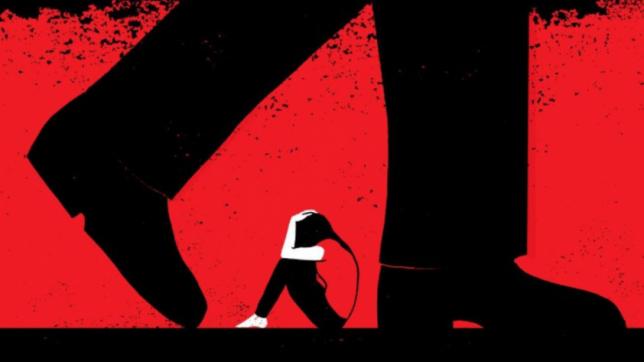Turning a blind eye?
We continue to be apathetic to issues of sexual harassment and violence against women and children
Nusrat Jahan Rafi’s murder is a gruesome tale of the systematic violation of basic fundamental rights of children and, particularly, young girls in Bangladesh. The statistics pertaining to violence against women and children are a direct contradiction to the nominal development that we have seen in the country over the past decade. The brutal murder of the courageous young girl Nusrat was a tragic reminder of the need to address the plight of women and children across the country.
Before delving into the numbers, it should be made clear that the target of sexual violence, harassment and intimidation has primarily been young girls, often resulting in their deaths or, ironically, them having to live with social stigma. For far too long, men, with a misplaced sense of superiority, have avoided and often mischaracterised women’s safety issues in the country.
The culprits, on the other hand, are another issue altogether. Nusrat’s case has brought to the fore the issue of safety in educational institutions where teachers are the culprits. These are the “teachers” and so-called Alems, in almost all cases men, who camouflage their monstrous intentions under the aegis of religion or education. Girls like Nusrat fight a battle each day just to go to school in rural Bangladesh; issues of patriarchy, legal reforms, and educational structures are areas which need to be looked at, to ensure safety of our girls.
In January 2018, the Bangladesh Shishu Adhikar Forum (BSAF) released a report on the state of child rights in the country. According to the report, as many as 49 children were raped and 28 murdered in Bangladesh each month. The 2017 statistics indicated that 339 children were killed and 593 raped that year—the numbers increased by a startling 28 percent and 33 percent respectively from 2016. Furthermore, according to a study published by BRAC University in March 2018, around 94 percent of women commuting in public transport had experienced sexual harassment in verbal, physical and other forms. Another study (Zaman, Gansheimer, Rolim & Mridha, 2017) revealed that 73 percent of female internet users in Bangladesh reported cases of cybercrime and cyber harassment to the government’s information and communication technology division’s cyber help desk. So, there is more than enough reason for the government to take sexual violence against women and children seriously and take measures to tackle these issues.
A study carried out by ActionAid Bangladesh, titled “Sexual Harassment at Educational Institutions and Workplaces: Implementation Status of the 2009 Supreme Court Guideline”, was released in May 2018. The study reported that 87 percent of university students were unaware of the legal directives given by the Supreme Court of Bangladesh, with regards to addressing sexual harassment. In 2009, the Supreme Court issued directives to prevent sexual harassment at workplaces and in public places. The court held that workplaces and academic institutions must take effective measures to prevent sexual harassment. The highest legal office of the land officially directed institutions to increase awareness, form committees and implement their stated guidelines. In the case of sexual harassment, a 2006 High Court directive has also been referred to, as a means to safeguard the existing law and to ensure institutional justice.
However, the reality is more damning. Cases regarding sexual harassment and child safety get sidelined due to a lack of resources, or, more specifically, interest of the state machinery. We have seen on numerous occasions how the attorney general’s office and legislators have expedited legal reforms involving politically sensitive issues (a classic case being that of the Digital Security Act 2018). The law, described as draconian by many, was passed hastily in parliament prior to the general elections last year. It was sent to the president for his assent, subsequently made into law, and implemented. On the other hand, issues of public safety, including demands by stakeholders for a sole legal architecture to address sexual harassment and violence, ensure child safety, or institutionalise road safety measures, remain in the vicinity of parliamentary committees, discussions and debates. Prisons are being filled up with opposition political activists, small-scale drug users and others who are yet to receive a verdict on their trials. And yet, sexual harassment, rape and child molestation cases make up for a sizeable chunk of the 3.3 million pending cases.
Today, the country remains united in its demands to punish the man and his accomplices responsible for the death of Nusrat Jahan Rafi. I have no intention of mentioning their names in this article; they deserve absolutely no space. Nusrat is not with us anymore but let’s not forget about her quest for justice. Let Nusrat’s murder be a wakeup call for all of us.
The top-down system in our governance structure must be reformed and the issues of women’s and children’s safety must be prioritised. For far too long have we left these issues on the sidelines, and for far too many years have we witnessed girls, women and children suffer the wrath of monsters in our society.
There is a need to mobilise the attorney general’s office to look into sexual harassment complaints and cases of sexual violence against women and children with the same level of willingness and priority as cases involving political opponents. The ball is in the government’s court and, in time, they will be judged for their actions, or a lack thereof.
Mir Aftabuddin Ahmed studied economics and international relations at the University of Toronto.
Source: The Daily Star.

